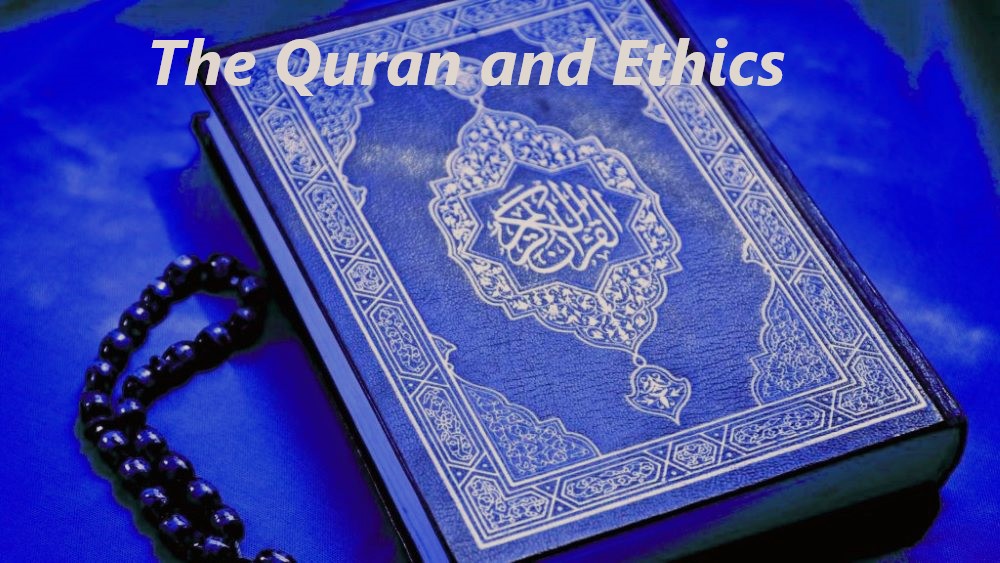Muslims all across the world respect the Quran and Quranic ethics, the holy book of Islam, as the inspired word of God. It is a thorough manual that covers every facet of life, including ethics and morality. Muslims should use the ideals and principles laid down in the Quran to direct their interactions with one another and the rest of the world. The Quran’s explanation of Islamic morality and virtue is examined in this article.
The Quran places a strong emphasis on the virtues that are necessary for creating a solid and moral organization, including integrity, justice, accountability, responsibility, compassion, teamwork, innovation, diversity, sustainability, fair wages, humility, and respect for the environment.
The Quran and Sunnah (the verbally transmitted record of the teachings, deeds, and sayings of the Prophet Muhammad, as well as various reports about Muhammad’s companions) are both the sources of Islamic ethics because the concepts taught by the Quran are embodied in the way of life of the Prophet Muhammad.
Morality and Virtue in Islam:
Islam is a religion that emphasizes the idea of morality and virtue greatly. Muslims are urged to uphold high moral standards in their interactions with others and lead moral lives. Numerous verses in the Quran stress the worth of morality and virtue and exhort Muslims to live their lives in accordance with these principles.
The Latin word moralities, which means “manner, character, and proper behavior,” is where the word “morality” originates. A rule of conduct that a person, a group, or a community regards as authoritative in defining right from wrong is typically referred to as morality. It is common to advocate for such a perfect code of conduct over other options.
An integral part of Islam’s worldview is its comprehensive moral framework, which is included in the religion’s whole way of life. Good and evil are frequently viewed as relative ideas in this day and age. Islam, on the other hand, asserts that moral beliefs are absolute and establishes a universal standard by which actions can be judged to be moral or immoral.
The morality of Islam is remarkable because it instructs the human race on how to uphold morality both on an individual and a societal basis.
The idea of “Taqwa,” which translates to “God-consciousness,” is one of the cornerstones of Islamic morality. Muslims are urged to pursue righteousness and virtue in all facets of their lives and to keep God in mind at all times. This is reflected in the Quranic verse, “Surely the most honorable of you with Allah is the one among you who is the most righteous” (49:13).
The significance of justice and fairness is emphasized throughout the Quran. Muslims are urged to respect others and refrain from any form of damage to them. “O you who believe! ” says the Quran. In Islam, the necessity of justice and fairness is emphasized by the verse, Stand firmly for justice, as witnesses to God, even if against yourselves, or your parents, or your kin(4:135).
Honesty, compassion, generosity, and humility are a few other crucial ethical precepts in Islam. Muslims are urged to treat others fairly, to be courteous and compassionate to those who are in need, and to live modestly in all facets of their lives.
The Impact of Islamic Ethics on Muslim Society
Every philosophy of life is fundamentally based on ethical principles. According to a Chinese proverb, if one has righteousness in their heart, they will have beauty in their character, which will lead to harmony in the home, which will lead to order in the country, which will lead to peace in the world. If one has beauty in their character, which leads to harmony in the home.
The great significance of values in human life was fully acknowledged by Islam. It not only supported the moral principles advanced by earlier religions, but also deepened and enhanced them. It offered the moral foundation and inner drive for lofty ideals. Islam impacted the deepest parts of the human mind, freeing it from the dark shadows of resentment, envy, greed, and other bad human traits while also illuminating it with the light of tolerance, love, kindness, selflessness, and respect for one’s own dignity.
Muslim society has experienced a significant impact from Islamic ethics and ideals throughout history. The importance placed on morality and virtue has shaped Muslim culture and traditions and affected how Muslims interact with one another and the outside world.
Islamic ethics have had a significant influence on Muslim society in a number of ways, one of which is through the advocacy of social justice and equality. Muslims strive to build a just and equitable society as a result of the Quran’s focus on these concepts. This is mirrored in the Islamic tradition of almsgiving, which calls on Muslims to help the less fortunate and fight to end inequity and poverty.
Muslim family life has been significantly impacted by Islamic and Quranic ethics. Muslims now place a high importance on the family and give their loved ones’ welfare top priority as a result of the emphasis on morality and virtue. Muslim households have a strong sense of community thanks to the Islamic focus on respect for elders and the value of close family ties.
Muslim attitudes about the environment have been significantly shaped by Islamic ethics. The significance of protecting the environment and being aware of our impact on it is emphasized by the Quran’s stewardship principle. Due to this, a strong legacy of Islamic ecology has emerged, emphasizing the significance of sustainability and the preservation of natural resources.
Muslim culture and traditions have been greatly influenced by Islamic teachings on morality and virtue. Muslims are urged by the values and principles laid down in the Quran ethics to live righteously and to conduct themselves with high moral standards in all of their dealings. These ideas have had a significant influence on Muslim society, motivating people to struggle for social justice, support close family ties, and uphold a high regard for the natural world. We can better grasp the values and principles that underlie the Muslim religion by looking at Islamic teachings on morality and virtue. We can also obtain a better understanding of the crucial role that these principles play in forming Muslim culture and society.






On this site, find a wide range internet-based casino sites.
Searching for traditional options new slot machines, there’s a choice for every player.
All featured casinos are verified to ensure security, so you can play securely.
pin-up
Moreover, the platform provides special rewards along with offers for new players as well as regulars.
Thanks to user-friendly browsing, finding your favorite casino is quick and effortless, making it convenient.
Stay updated regarding new entries with frequent visits, because updated platforms are added regularly.
https://shorturl.fm/a0B2m
https://shorturl.fm/m8ueY
https://shorturl.fm/j3kEj
https://shorturl.fm/5JO3e
https://shorturl.fm/5JO3e
https://shorturl.fm/oYjg5
https://shorturl.fm/TbTre
https://shorturl.fm/A5ni8
https://shorturl.fm/5JO3e
https://shorturl.fm/47rLb
https://shorturl.fm/YZRz9
https://shorturl.fm/Xect5
Sign up and turn your connections into cash—join our affiliate program! https://shorturl.fm/55p9i
Monetize your traffic instantly—enroll in our affiliate network! https://shorturl.fm/EdpIb
Hi there, its fastidious post regarding media print, we all be
familiar with media is a impressive source of data.
Partner with us and earn recurring commissions—join the affiliate program! https://shorturl.fm/FJscC
Tap into unlimited earnings—sign up for our affiliate program! https://shorturl.fm/HWvus